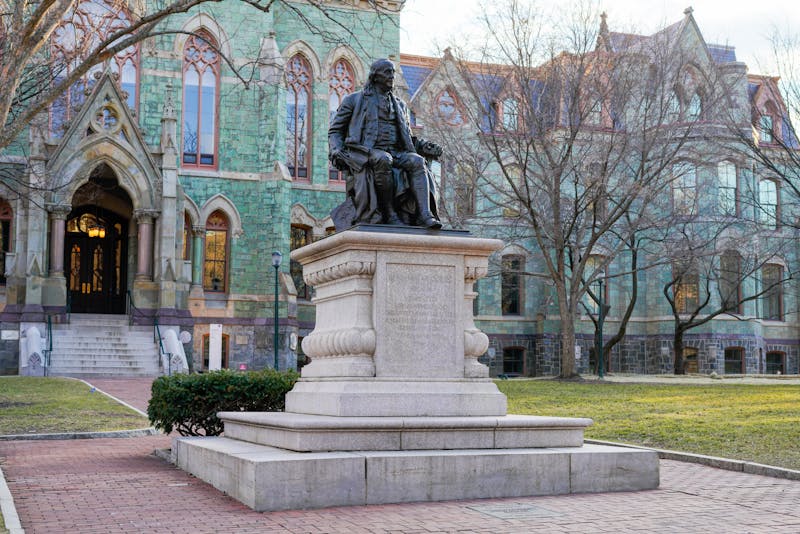
Map from University Archives and Record Center
Last winter, a more than 150-year-old African American burial ground was discovered lying underneath a Penn parking lot. Now, the city, with Penn’s support, is taking action to protect it.
In a unanimous vote on Nov. 9, the Philadelphia Historical Commission officially designated the African Friends to Harmony Burial Ground underneath Penn’s 4111-23 Chestnut parking lot as a Historic Place. Any plans to renovate the lot must now receive approval from the Commission.
The portion of the burial ground not underneath the parking lot — namely the approximate quarter a Philadelphia business is developing into a new apartment building — was not included in the designation.
According to the Historical Commission nomination form, the site was actively used as a burial ground as early as 1826 and at least until 1882. In that time, at least 136 people, largely from the West Philadelphia African American community, were interred at the site.
Stonybrook University History Professor Donna Rilling has been studying the burial site alongside the Philadelphia Archaeological Forum for the last several months. Rilling, who received a Ph.D. in history from Penn in 1993, worked to prepare the nomination for 4111-23 Chestnut to the Historical Commission. At the end of the meeting, she said she was satisfied by the day’s proceedings.
“I’m thrilled,” Rilling told The Daily Pennsylvanian. “And I hope something can be done to commemorate the spot.”
At the meeting, Penn made a statement supporting the site’s nomination.
“The University only became aware of the historic significance of this parcel in recent years," University Associate General Counsel Ira Kauderwood said at the meeting. “We appreciate the wealth of additional information provided by this nomination. We support the nomination, and we look forward to working with the Historical Commission in the future on this site."
Last spring, Director of the University Archives and Record Center Mark Frazier Lloyd said although he has not seen any documentation that the remains had been relocated, it was still unclear if there were still remains at the location. He speculated that the remains may have been moved when the site was closed as a cemetery in the early twentieth century.
According to Rilling, Penn has ordered a ground penetrating radar test to see whether human remains are still at the site, but it proved inconclusive.
Rilling added that the University’s support of the nomination helps with its larger effort to improve relationships with the surrounding community.
“Penn has finally stepped up to the plate,” Rilling said. “It is in their best interest politically, and otherwise, and historically to recognize this [historical designation].”
She specifically compared the University’s support for the burial ground with last year’s launch of the Penn Slavery Project and the University’s consequential recognition of slavery’s role in Penn’s founding. Rilling said that both efforts help strengthen the school’s ties to the history of West Philadelphia’s black community.
Executive Director of the ICPIC New Africa Center Abdul Rahim Muhammad, who attended Friday’s meeting, is also encouraged by the designation's recognition of local black history. Muhammad said he recently founded a tour that takes guests to different West Philadelphia murals and historical sites significant to black culture. Given its new status as an official historic designation, Muhammad said he hopes to incorporate the burial ground into the tour.
“The cultural history of our people and their struggle and their determination is important,” Muhammad said. “And we need to be able to preserve that legacy.”
The Daily Pennsylvanian is an independent, student-run newspaper. Please consider making a donation to support the coverage that shapes the University. Your generosity ensures a future of strong journalism at Penn.
Donate






